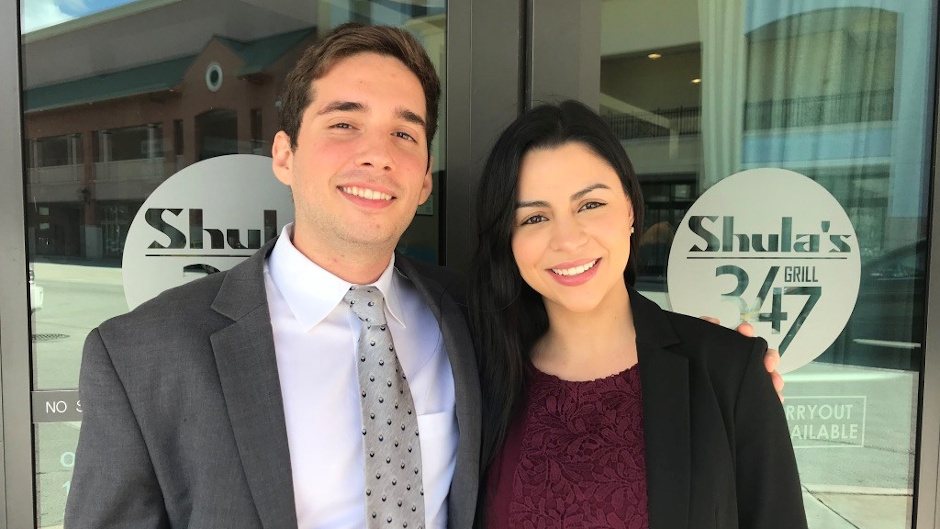After The Florida Medical Marijuana Legalization Initiative passed in 2016, the legal profession has been preparing itself for the burgeoning number of potential clients associated with the now state-legal medical marijuana business. However, Florida attorneys are rightfully concerned about the state-federal dichotomy that currently surrounds the legal landscape of marijuana. Marijuana is still classified as a Schedule 1 controlled substance under the Controlled Substances Act (CSA) despite states continuing to legalize medical and recreational forms of marijuana. In the midst of this federalism battle, there emerges a myriad of unique legal ethical concerns that attorneys must understand if they wish to advise clients in Florida’s state-legal marijuana business.
2L intern Maria Camila Hernandez had the opportunity to provide the latest update on Florida’s medical marijuana laws and the ethical implications of advising medical marijuana businesses. “I was very impressed with the attorneys’ knowledge on the representation of clients involved in the cannabis industry and the status of Florida’s medical marijuana regulations.”
PREP Fellow Daniel Celaya presented on the federal and state legal landscape surrounding marijuana, along with the ethical implications of using artificial intelligence in the legal profession. Celaya noted that the interest in these topics was infectious. “While these issues may not presently affect most attorney’s day to day lives, the lawyers at the South Miami-Kendall Bar Association were extremely interested in how the future of the legal profession will be shaped by emerging technologies.” The conversational atmosphere made it a truly educational experience for all who were present.
PREP students, as well as PREP Director Jan Jacobowitz, discussed cannabis law as it relates to lawyers, lawyer well-being, and technology in a crowded room of 120 attorneys and judges at Dean William Vanderwyden's Partnership for Professionalism Dinner. PREP fellow Marissa Shulman, and PREP interns Spencer Booth, Lilli Balik and Jonathan Portuondo presented at the dinner.
The PREP team designed and presented three interactive hypotheticals. Booth and Balik presented Act I, which featured various scenarios involving attorneys, cannabis, and mental health in the community. These scenarios facilitated a lively conversation on the status of mental health in the legal profession. “Being able to present to judges and prominent lawyers in our community, as well as some of my peers, about the status of mental health in our profession was truly enlightening,” said Booth.
Balik addressed the ethical issues implicated from cannabis law. “Due to the recent emergence of cannabis law, the Partnership for Professionalism program provided a great forum to educate the legal community about this emerging legal issue,” she explained.
Portuondo presented Act II, which raised issues related to public wi-fi, flash drives, and encryption. “The rapid advancement of technology in the last decade has impacted all different areas of society and the legal profession is no exception,” explained Portuondo. “Dean V's professionalism dinner provided a great opportunity to engage with the South Florida legal community and see where technology has brought the practice of law and where it will be taking it in the near future.” Shulman presented Act III, introducing confidentiality issues related to document storage capabilities on public printers and scanners. “Lawyers might not always be aware of the ways data is stored in the public devices they use. As storage technology advances and the ability to hold more data increases, being cognizant of how data is stored and how it could later be accessed is essential to protecting a client’s confidential information,” she said.
PREP is an award-winning program that develops continuing legal education ethics training for the legal community. The program combines the attributes of an ethics institute and an ethics clinic, has dedicated hundreds of student hours to public service, and has educated thousands of members of the Bench & Bar. During training, students are often able to make a positive impact on attendees by prompting them to consider and reconsider their approaches to some of the toughest ethical dilemmas that may arise in the practice of law.
In 2012, PREP was recognized by the ABA with its E. Smythe Gambrell Professionalism Award, the leading national award recognizing programs and projects contributing to the understanding and advancement of professionalism among lawyers and judges. In addition to presenting ethics training, throughout the semester PREP students publish blog posts regarding the nation’s newest ethics opinions. The blog, Legal Ethics in Motion, can be found here.

